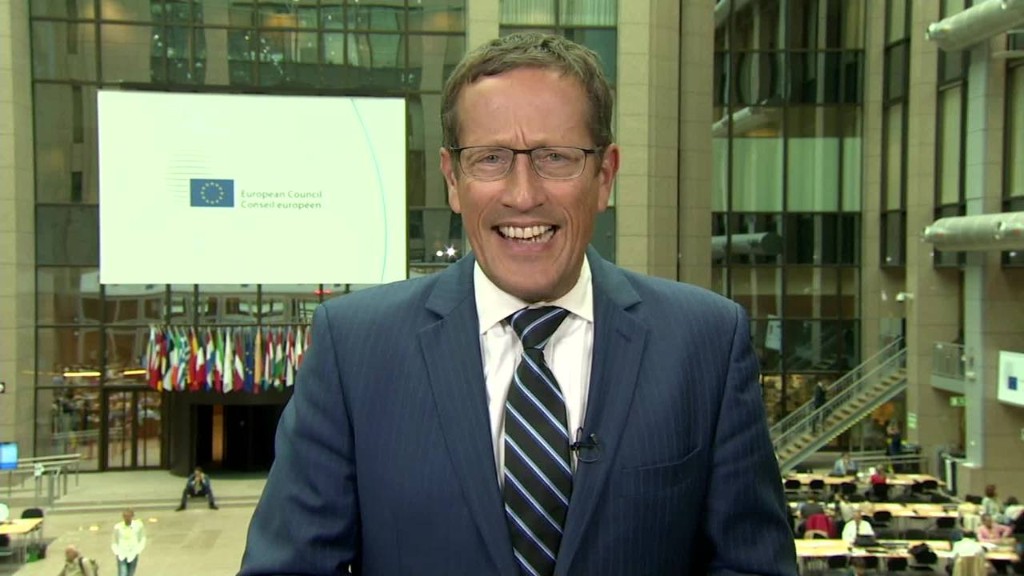
Time to book a trip to Paris, Rome or Athens? The U.S. dollar rallied on the news of the "Agreekment" Monday -- and some experts think the greenback should strengthen even further.
There's even talk once more about the euro, which is currently worth a little more than $1.10, potentially hitting parity with the dollar at some point in the near future.
Why is this happening? If Greece actually is able to remain in the eurozone, shouldn't that boost the value of the the euro currency? After all, a messy Grexit seems to be off the table now.
That is true. But now that the worst case scenario for Greece appears to be in the rearview mirror, traders are focusing on the economic outlook for the United States -- especially the Federal Reserve's next steps.
Related: Fed's Janet Yellen says rate hike coming 'later this year'
Some market watchers had been suggesting that the Fed might hold off on an interest rate hike in September if Greece left the eurozone because that event could destabilize the global financial markets.
Even a few Fed members expressed concerns about Greece at their latest policy meeting in June.
But Steven Englander, a currency strategist at Citigroup, wrote in a report Monday morning that the market is viewing the Greece news as a sign that a September rate increase is still likely.
Bond yields were climbing too. The benchmark 10-Year Treasury hit 2.45% -- near its highest levels of the year. That's another sign that investors are betting on a September rate hike.
If the Fed raises interest rates in September, then the dollar should continue to gain value against the euro. Higher rates usually lead to a stronger currency.
Related: Greek bailout deal reached after marathon talks
At the same time, the European Central Bank won't be in any rush to raise interest rates -- or end its stimulus policies -- anytime soon.
The ECB recently adopted a policy of bond purchases known as quantitative easing, or QE. It's similar to what the Fed was doing in the midst of the financial crisis.
The bond buying should push rates lower in Europe and keep a lid on the euro as well.
"The ECB will have to aggressively continue its QE program to simply stabilize demand after the trauma incurred over the past month. That will likely put sustained pressure on the euro in the near term," said Boris Schlossberg, managing director of forex strategy with BK Asset Management, in a report Monday.
Related: Markets cheer the Greek agreement
What's this mean for you? The strong dollar is good news for travelers. You get more bang for your proverbial buck.
But even if you aren't looking to head overseas, consumers can benefit. Goods imported from Europe will be cheaper because of the weaker euro.
Still, there are some downsides to the stronger dollar. It could hurt profits for big multinational companies with significant exposure abroad. That could be a problem for the stock market.


